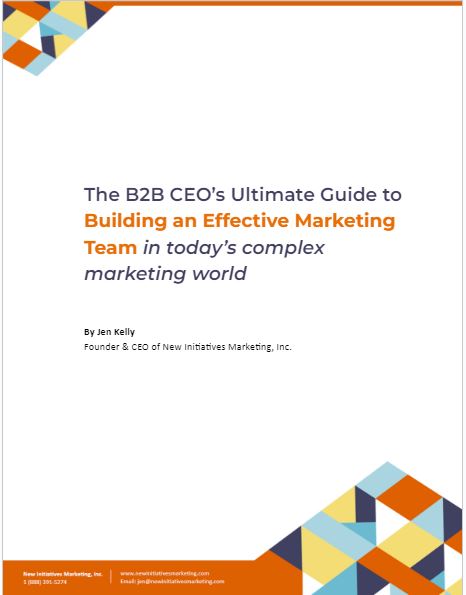Search engine optimization (SEO) is a big term that gets thrown around a lot these days. But what does it really mean? For many business owners, this term is an enigma wrapped in a mystery, complicated like the stock market or a particularly troublesome math equation.
You’ll hear the explanation that SEO means that you’ve optimized your website content so that the Google robots or algorithms can efficiently index the pages and know what they are about.
This means using words and phrases (keywords and long tail keywords) on your website to describe what it is that you sell or what problems you solve for customers.
How this all fits together is that when your potential customer types into Google a product name, a service name or a problem they are looking to solve, you will have these words and phrases on your website.
Google will then find the match between the information on your website and the search your potential customer just did, and serve your website up in the search results. (It does get a bit more complicated, involving how well the website’s technical back end is set up, how long the website has existed and how much and how often new content is added to the site, but for the purpose of this introductory article, that explanation is just fine).
Without having the right keywords on your website to describe your products and services (right being the words and phrases your customers users to find a company like yours to help them) it would be said that you are not paying attention to SEO.
If you are not paying attention to SEO, then how can you help your potential customers find you? How can you help Google show your company’s website in the search results? You can’t.
Yes, you can ignore all of this and just launch your website describing your products and services the way YOU want to using the words and phrases you like…but doing this essentially hides you from your customers.
It’s Still Relevant
Although some marketers may believe that SEO is dead, Forbes insists that it’s not even close to being irrelevant and it still works well. Several years ago, when search engine algorithms were just starting to appear, it was easy for marketers to use shady practices and keyword stuffing to get their websites ranking higher. Now, the algorithms are much more sophisticated, and the focus is more on improving the user experience than adding SEO touches afterward.
What Words to “SEO”?
To find out what words or phrases to make sure you’re including in your website so that it will show up in a Google search, you first need to start with keyword research.
To do this, start by listing all the words and phrases you’d use to describe your product, service or business.
Next, call and talk to your customers (we do this as part of our marketing packages) and ask them what they’d type into Google if they were looking for a company like yours (but hadn’t worked with you yet).
Chances are you will be surprised with what words and phrases people will use. And honestly, you will probably not like the keywords that people use to describe your company or services.
You may feel they are too simple or not showing the whole picture of what your company does. That’s OK – we need to meet the customer where THEY are, not where we want them to be.
After that, use keyword research software to find out which terms are being searched for, in what volume and what the competition is for those keywords.
Once you’ve found that information, you’ll want to choose the keywords that have a good amount of volume (there is no sense being listed on page one for a term no one is searching for) and a reasonable amount of competition – where you have a chance to rank.
Explain it Like Your Customers Do
Most likely these will be words and phrases that end up describing your company in a simple way. For example, we get found for website design even though that is only one of the many services we offer.
Another colleague runs a PR company. She doesn’t like using the word PR company….she likes calling her firm an “Integrated Marketing Communications Firm” because that is what they are and what they do.
Unfortunately, through the keyword research, she found that there were no searches for Integrated Marketing Communications Firm, but were many more for PR Company.
So, as she’d rather have a thriving business than stick to her Integrated Marketing Communications Firm guns, she changed the content on her website to include that term so she’d show up in the search results when her potential clients were searching for a company to help with their PR.
Quality Content and SEO Gives You Credibility
Search engines such as Google are always changing their algorithms to become better for the user. This means that the way we view content must also change and evolve.
Quality content on your website not only gives Google more reason to rank you higher, but it also improves the user experience and gives your business more credibility.
What does “quality content” mean? Think of is as helpful information for your customer.
Put yourself in your customer’s shoes and pretend they do not know anything about your company. They have landed on your website. They’ll want to know what you do and what problems you solve. Have you written the content on your website to help your customer?
When hearing the phrase “quality content” just think “information helpful to my potential customer”.
Online Reviews Matter Too
Today’s search engines are not just tools to find websites. Take Google for example, when you Google a product or company, you will most likely also find Google+ reviews and other outside information on the business.
This is vital for companies because today, most customers will read reviews on a product or business before spending money on it. Getting customers to post positive online reviews will only serve to help your business and give potential clients more reason to spend money with you.
It’s Inexpensive
SEO is one of the most cost-effective methods that a business can use to gain exposure and produce results. Most businesses are primarily concerned with the return on investment. With SEO, the ROI is quite high compared to pay-per-click (PPC) campaigns.
However, SEO is a long term game requiring patience and consistency. The content you produce will go on to help you as long as it is live on the web. Your PPC campaign will only help you as long as you are paying for the campaign.
And Now Back to Sales
So how does SEO impact your sales? If your potential customers can’t find you, they can’t buy from you. Most purchases start with a search on Google – you want to be sure you’re showing up as early in your buyer’s journey as possible.
This way you can help educate and inform them as they research their purchase and start to form a short list of companies to consider. This is how your online content can shorten the sales cycle by helping the buyer to know, like and trust you.
If you haven’t been doing this, how many short lists do you think you’ve lost the opportunity to be on simply because you didn’t show up in the search results?
Next Steps
Start with where you are. Run a complementary audit – you’ll get your report in 60 seconds. Click through here and scroll down to “I want to see what my SEO ranking is.” This is the first step to getting SEO helping to bring in more sales for your company.
Jen Kelly is a marketing consultant in Toronto running New Initiatives Marketing Inc. (NIM) serving clients in Canada and the USA. NIM is the team to call for marketing execution excellence. Contact us today for a no-obligation conversation about how SEO can bring in the sales for your company.







